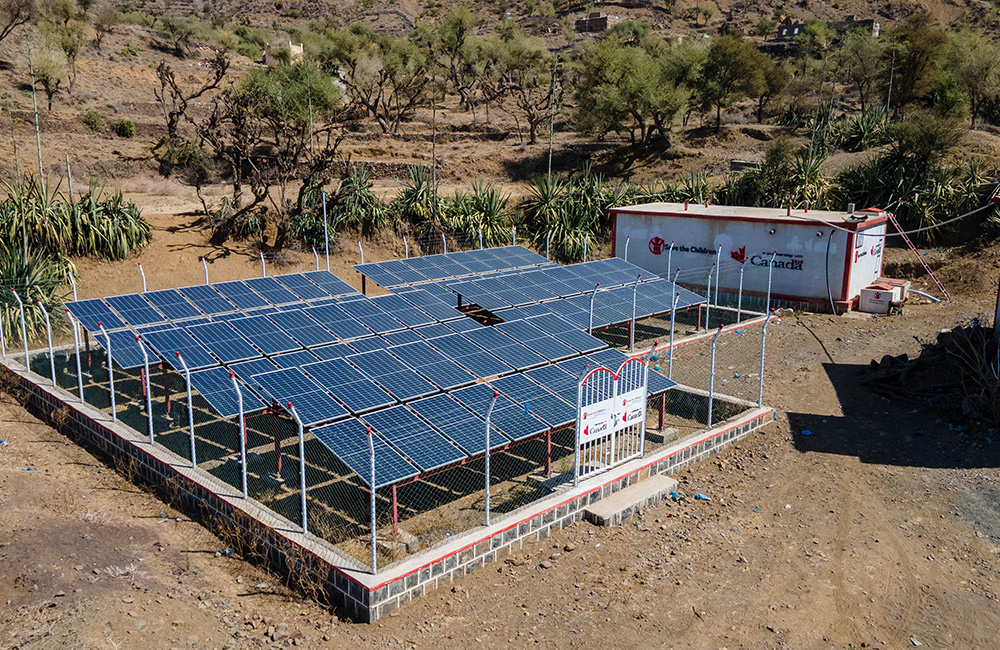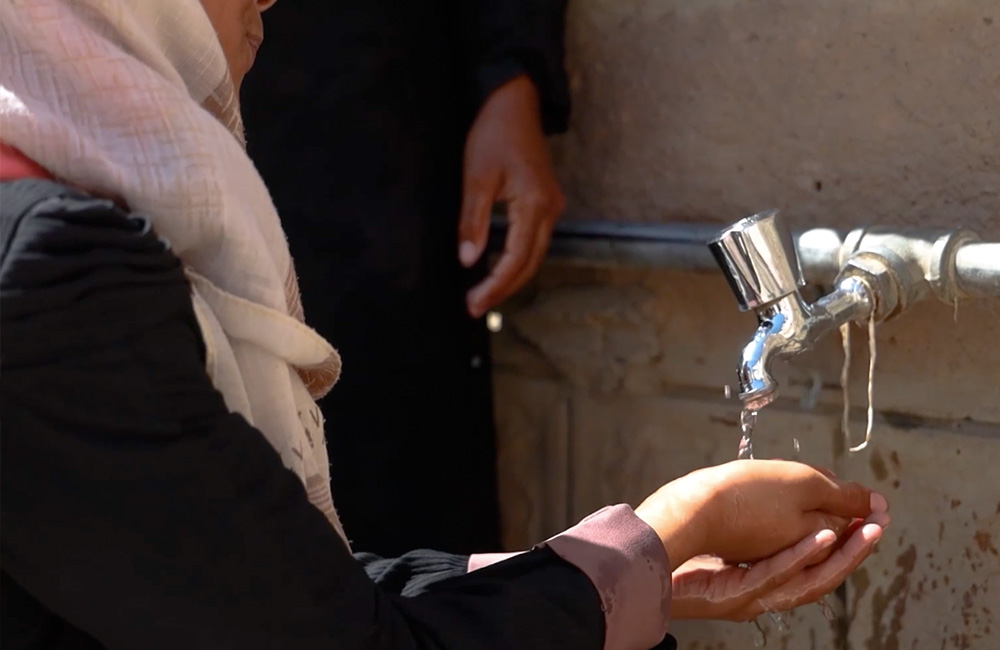Yemen's water crisis
Yemen faces a severe water crisis, with millions of people lacking access to safe water and adequate sanitation services. The Taiz governorate, where Salwa's village is located, is one of the most affected areas. Economic fragility, fuel shortages, and population growth have exacerbated the situation, making it difficult for communities to sustain basic services.

The solar-powered water system that was installed in a mountainous, remote village in Taiz,
Yemen to give residents access to clean, safe water.
Recognising the urgent need, Save the Children provided support to the community to help make the solar-powered water project in Taiz possible. The project aimed to enhance community resilience by rehabilitating and protecting the water supply system, ensuring sustainability and independence. Thanks to our generous supporters, Save the Children was able to provide financial assistance, equipment, and training to enable the successful implementation of the project.
Sustainable transformation
The solar-powered water project implemented by Save the Children brought about profound changes for Salwa and her community. It was designed with a diversity of elements to ensure long-term impact and sustainability. An Environmental Impact Assessment was conducted to mitigate any negative effects on the environment, and a supply versus demand analysis ensured the safe replenishment of the water source.

Students can now wash their hands in the solar-powered clean water at school.
One key aspect of the project was the formation of the Water Management Committee. Comprising both men and women, the committee received training in maintaining and operating the water supply system, including environmental and financial aspects. The participation of local women from the beginning of the project was a key part of ensuring it would fulfil the needs of the whole community, as collecting water often falls to women and girls.
Walking alongside communities
Save the Children's work in Yemen extends beyond providing clean water. By working with communities to manage their water supply independently, Save the Children ensures the long-term sustainability of the projects. Through collaborations, environmental assessments, and inclusive participation, Save the Children has become a source of strength for communities in the most challenging environments, enabling them to break free from the cycle of poverty and open up a world of possibilities.
“We can stay inside the house now, and we no longer need to leave at dawn to fetch water and sometimes skip school. It's such a relief that water is available in the school, so we can drink and use the bathroom. I love going to school because I have ambitions, and I wish to be a doctor.”
*Name changed to protect identity.
Photos: Al-Baraa Mansoor / Save the Children.